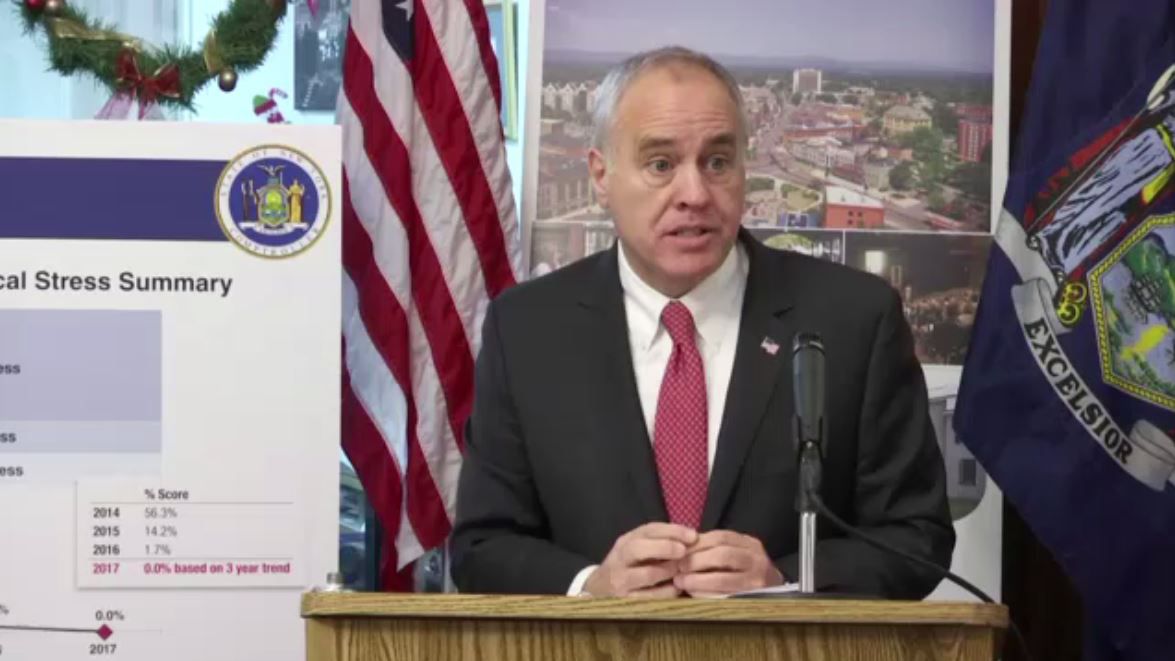New York state Comptroller Tom DiNapoli in a letter to the commission determining the rules of the road for New York’s public campaign financing system urged the panel to keep fusion voting intact.
The letter was first reported this weekend by NY1’s Zack Fink.
DiNapoli at the same time urged the commission to create a public financing system, calling the move a “good investment” to improve the state’s elections.
But fusion voting, the practice of allowing candidates to run on multiple ballot lines, is believed to be in the crosshairs of the panel.
Ending or significantly limiting fusion voting could hinder the futures of minor parties like the Conservative and Working Families parties, and both have filed lawsuits challenging the legality of the commission, which was devised by the Legislature and Gov. Andrew Cuomo earlier this year to devise the specifics of how the public financing system work work.
“On the separate issue of fusion voting, it has been my experience that New York’s current system to allow multi-party endorsements for candidates is a net positive for our State,” DiNapoli wrote in the letter last week. “It is my view that fusion voting provides greater opportunity for diverse opinions and coalition building that strengthens the democratic process. While it may be appropriate to review current thresholds, I strongly urge the Commission to continue to permit the fusion voting option.”
As for public financing, DiNapoli wrote that “it is imperative” to stem the influence of big money in political campaigns.
“Public campaign finance will allow candidates and elected officials to compete on a more even playing field and to make decisions without the undue influence of large campaign contributors, thus removing the perception of pay-to-play,” he said. “It encourages more people to enter the political process and fosters our ability to bring different viewpoints and perspectives to Albany for the good of all New Yorkers. It is a sound investment in a more open and transparent government.”
State lawmakers and the governor in 2014 created a pilot program for public financing for the comptroller’s race.
DiNapoli declined to participate as the program was created in the middle of the election cycle. His Republican opponent that year, Bob Antonacci, did participate, but failed to qualify for public matching funds.
Campaign finance reform advocates are closely watching the outcome of the commission’s work and a report is expected to be released before Thanksgiving with recommendations that have the force of law unless the Legislature acts by the end of the year.
The commission has drawn concern in recent days with the potential of a high matching funds to donations ratio, and the potential for matching funds to be only counted for money given legislative candidates who live in a district — potentially limiting the appeal of participating in the program.



